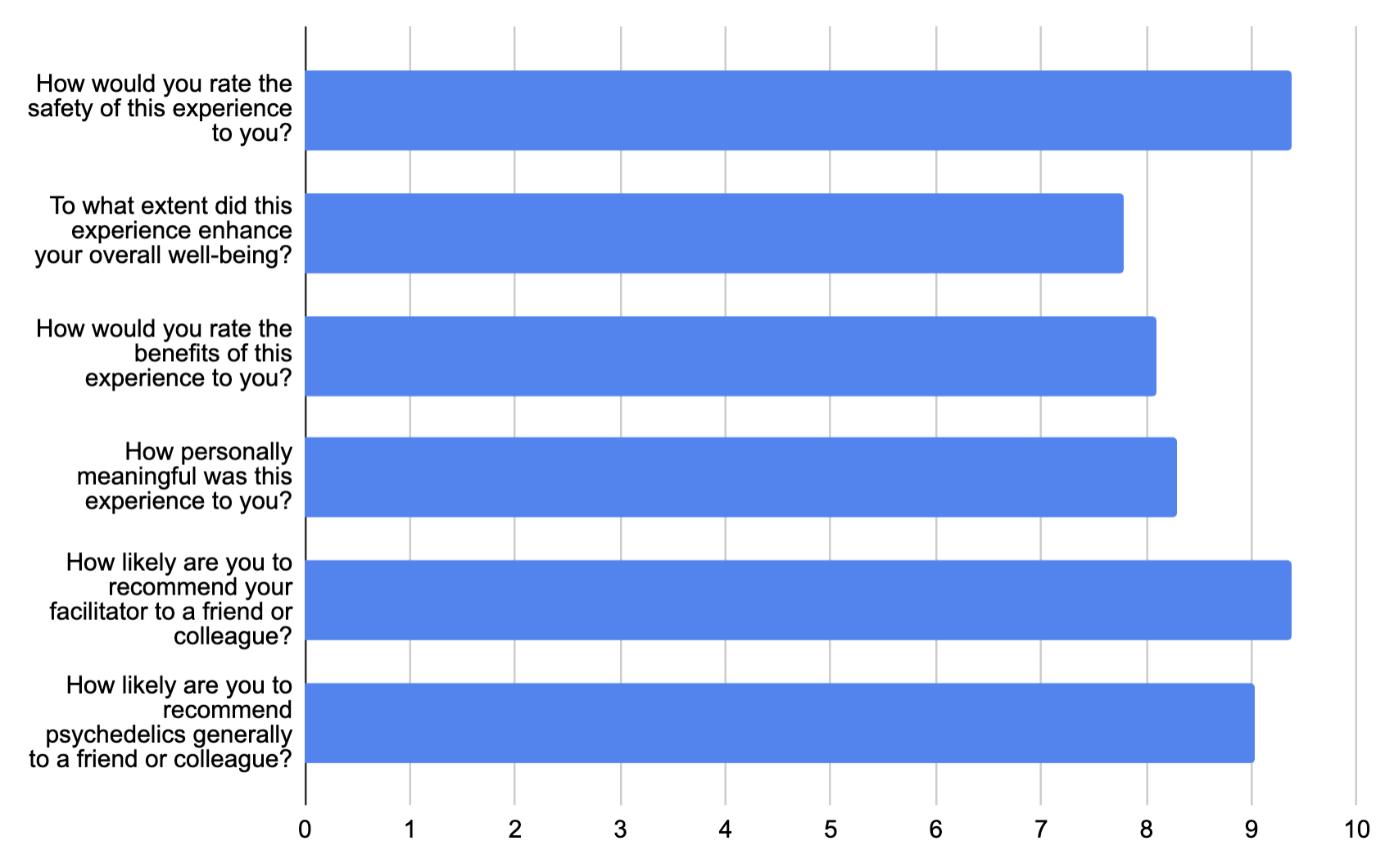
One of the big talking points around psilocybin-assisted therapy is cost, and rightfully so. In Oregon, you can expect to pay anywhere from $1000 – 3000 (or higher) for a psilocybin-assisted therapy session. If you aren’t near a licensed Service Center, you may additionally need to add on travel costs.
Now before you write it off as too expensive, know that nobody is making a “killing” offering these services. The facilitators and centers that have obtained licenses have done this, not because it is easy or profitable, but because they believe in the power of this medicine. Everyone agrees it’s unfortunate that the cost is so high. I think it’s healthy to remember that this is just the starting point, and that everyone involved is looking for ways to make this affordable for more people. And there is hope.
Let’s also break down what all is included with psilocybin-assisted therapy:
- 1 full-day psilocybin journey that can last up to 6 hours
- The time and attention of a trained facilitator who guides you that whole day
- Sessions before and after your journey with your facilitator to help you prepare and integrate your experience
- Rented space at a licensed center to have this journey
- And, of course, the medicine itself
When you really pull apart everything that goes into this style of therapy, it makes sense that the price tag isn’t lower. But that doesn’t mean people are happy with the level of affordability in the program. There are other drivers that increase the cost too, like licensing fees.
Licensing Fees
In Oregon (as in future legal states), the program is run by a state agency. This agency is staffed with a team that has worked hard to put into action a program to allow for psilocybin-assisted therapy; something the residents of Oregon voted on. To do that work and staff that team, the agency charges licensing fees. There are a number of different license types in Oregon, each charged a particular fee to contribute to the coordination of the program. At the end of the day, this agency (in Oregon, the Oregon Psilocybin Services program under the OHA) is responsible for the safety and success of the program. It helps make sure there are appropriate checks in place for quality and opportunities and processes for participants of the program to vocalize concerns.
Paying Facilitators Fairly
While cost is a major concern for the program, so is the opposite side of the coin: paying facilitators fairly. These healers are trained, licensed individuals that put in hours of time and even more energy and care into ensuring journeyers have a safe and rewarding experience. This is no easy task. On the day of the therapy, they sit with the client all day, absorbing and helping smooth the energy, and attending to any need that arises. This is tough, emotionally-draining work. Many people have very profound, emotional experiences that they’ll remember their whole life in these sessions. While its rewarding for facilitators to get to guide you through such an amazing experience, it is taxing as well. In total, facilitator are likely putting in ~10 hours or more for any given participant to prepare, administer, and integrate. For the industry to succeed, we need to make sure facilitators are able to earn living wages that enable them to do this great work.

How valuable are people finding it for the cost?
The above graph shows aggregated data from 169 Oregon psilocybin-assisted therapy sessions. Participants were asked the questions above (among others) weeks or months after their sessions. What it tells us is that, yes, people are finding this valuable! The average score for if you’d recommend psilocybin to others is 9 / 10. When asked how personally meaningful of an experience it was, the average score was > 8 / 10. These numbers corroborate what many others have experienced and what has been measured in clinical studies.
Are people working on making it more affordable?
Absolutely! This is an active conversation by everyone in the industry. Many, if not all, facilitators offer services on a sliding scale so that they can better align their prices with the client’s ability to pay. Non-profits have popped up that help subsidize the cost for others – like the Sheri Eckert Foundation (or our Forward Fund). Clinical trials are being run which can help lower the cost for participants. Facilitator training programs sometimes offer discounted sessions where a trainee is supervised by a licensed facilitator. Enthea is offering psilocybin-assisted therapy as an employee benefit for companies that opt in. People are working on showcasing the benefits of this type of therapy to eventually get insurers to cover this for the folks who need it the most. If we hope to make this a manageable cost, I think we’ll need to get there, and the sooner the better.
Need help paying for psilocybin therapy? Here are some options.
- Find a facilitator with Althea. We just created a fund that will help those in need to lower the cost. Check it out here. As part of that discussion, let us know the need, and we’ll see how we can help.
- If you find a facilitator, chat with them about your situation. Many facilitators have a sliding scale option to help those interested in this therapy but are struggling to pay for it.
- Shop around at different centers and with different facilitators. Prices vary! If you need some guidance with this, reach out.
- Consider partaking in a group session. Often, group sessions are more affordable than individual sessions and can be more rewarding too.
- Look for research studies, which often offer discounted or free therapy. Check out MAPS, Usona Institute, and clinicaltrials.gov for active studies.
What does the future of paying for psilocybin-assisted therapy look like?
From a cost perspective, one of the goals in the legal model is to get insurance to cover this treatment. Since psilocybin has been a Schedule I drug for so long, it has made it complicated to research. In the middle of the 20th Century, there was a lot of research on psilocybin, but once the War on Drugs began, it became more difficult and risky. Fortunately, there has been a resurgence of interest around the medicine, and a host of new studies and understanding of how it works. We’ve learned that psilocybin can be an effective treatment for anything from substance use disorder to depression to PTSD to traumatic brain injuries, and more. As more research is completed, many believe insurance will be swayed because it is a more successful treatment than current alternatives.




